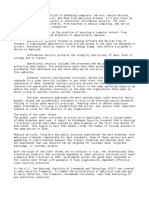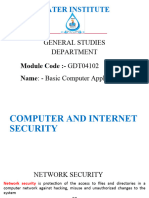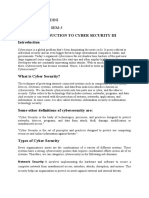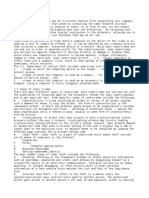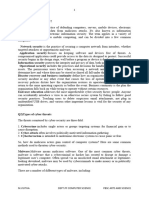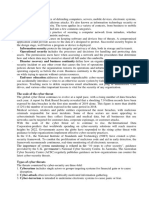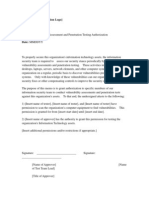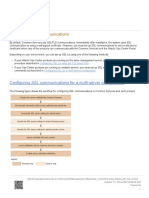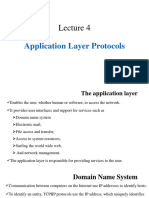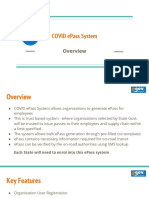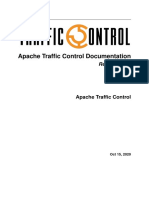0% found this document useful (0 votes)
25 views5 pagesCyber Security
The document discusses cyber security and provides tips to protect against cyber threats. It defines cyber security, viruses, and different types of cyber crimes. It also explains tools used in cyber security like antivirus software, firewalls, and their uses.
Uploaded by
mithilassi69Copyright
© © All Rights Reserved
We take content rights seriously. If you suspect this is your content, claim it here.
Available Formats
Download as DOCX, PDF, TXT or read online on Scribd
0% found this document useful (0 votes)
25 views5 pagesCyber Security
The document discusses cyber security and provides tips to protect against cyber threats. It defines cyber security, viruses, and different types of cyber crimes. It also explains tools used in cyber security like antivirus software, firewalls, and their uses.
Uploaded by
mithilassi69Copyright
© © All Rights Reserved
We take content rights seriously. If you suspect this is your content, claim it here.
Available Formats
Download as DOCX, PDF, TXT or read online on Scribd
/ 5
